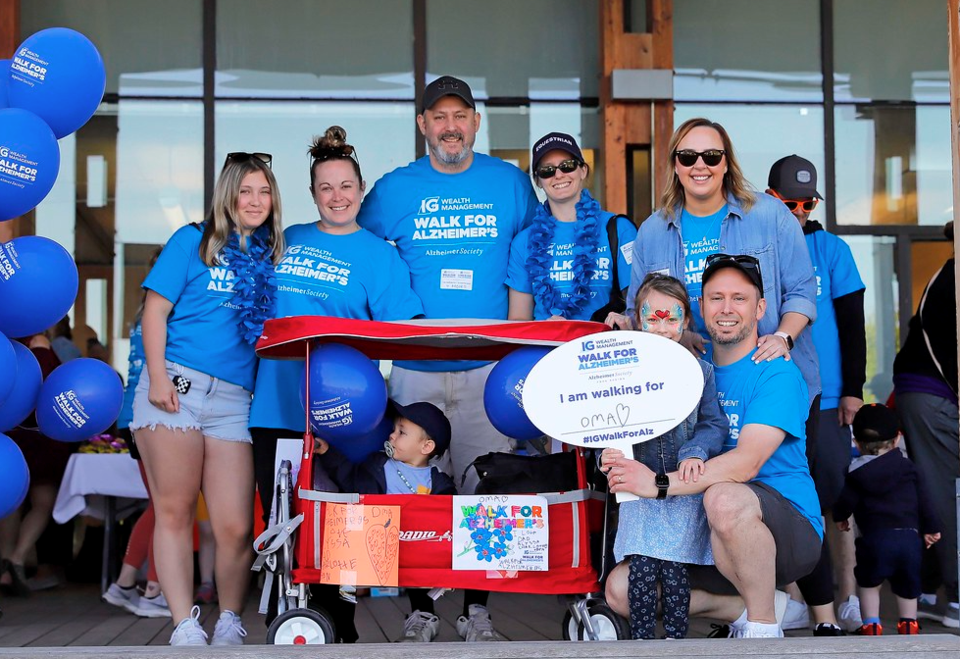It was a return to form as the Alzheimer Society of York Region and its family of clients and supporters made the first in-person IG Wealth Management Walk for Alzheimer’s since the start of the global pandemic a smashing success.
And participants at this year’s event held May 27 at Lake Wilcox Park helped “smash” the society’s fundraising goal of $100,000.
“The walk was absolutely amazing this year,” says Andrea Ubell, director of programs and client services for the society, prior to the June 30 deadline for fundraising. “I have participated in every single walk here in York Region since the very beginning. We had about 50 teams, set a target of $100,000, and now it’s around $107,000 and still climbing.”
The beauty of the event, she says, is the money raised stays locally.
“The money will help us with programming; our day programs are funded but not fully, and 60 per cent of our operating costs come from the Ministry of Health, but we have client fees we have to raise and those have been significantly affected over the last four years because we haven’t had people in our programs. We use money from United Way and some of the other grants we apply for, and we have been able because of the needs of the pandemic to redirect some of the money…. Some of the money raised at the walk will help with that program. Currently some of that money we raised will help us with our Minds in Motion program, the iPod, the music project, perhaps getting some musicians back in our centres.”
Food insecurity was another issue that was tackled, says Ubell, noting recent funding from the Ontario Trillium Foundation to help them get back to speed in their post-pandemic recovery.
The use of this funding, which was recently celebrated in a recognition event with Aurora-Oak Ridges-Richmond Hill MPP Michael Parsa, helped the society support and boost their infrastructure, including the replacement of 25 computers, and expanding services online for clients and families.
“As horrible as the pandemic was, we realized we could do things a little differently and maybe even a little more efficiently for families,” says Ubell. “For them, sometimes York Region’s transportation system is such a challenge and for seniors who don’t necessarily have someone to take care of their family member, they were able to join education programs, they were able to join support groups, and they were able to join our psychotherapy group we run through the carers, our mindfulness group. A lot of those things may even stay online and the money we received from Trillium helps us continue that.”
But COVID still remains a game changer. As the society slowly gets back to normal, welcoming clients to in-person programs and targeting September as a return to full service face-to-face programming, they are anticipating a number of new challenges.
These include staffing challenges – the society is still looking for a volunteer driver to operate their van – and those that come with increased complexities of the disease.
“People have had almost four years shut in, so it is going to take people a while to get back into doing sort of new normal,” says Ubell. “The last three years have been such a horrible, horrible challenge for our clients who badly need respite but were unable to get it. People with dementia declined much more quickly than we anticipated. It’s the clients that were able to get back into the day programs. We were up and running pretty quickly – closed in March and reopening Thornhill and Aurora in September – and we had a number of clients come back but they were so different after three months of closure. It was heart-breaking for most of us. For those caregivers of ours who have family members in long-term care, it was just heartbreaking for then
“In a few years we’re all going to realize how these years of the pandemic have affected and continue to affect us.”
For more information, visit alzheimer.ca/york/en.



